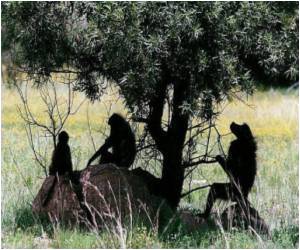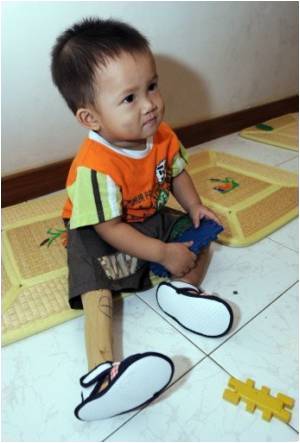When people encounter a novel member of any category, the ability to form a general concept that connects what we know about the members of a category allows humans to respond appropriately.

In this study, a young female gorilla and four orangutans of various ages were shown images of animals and asked to match them to an image from the same species or family (i.e. one with a perceptual similarity). In an alternate experiment, they were presented with images of animals belonging to different taxonomic classes (insects, reptiles, fish, birds, and mammals) and were asked to match these images to sample images of other members of that class.
In the case of images from within a taxonomic class (for example different reptiles) each image naturally shared fewer perceptual features, presumably making it more difficult for the apes to match the images correctly using only perceptual strategies. If the apes were using a purely perceptual strategy then they should find it harder to match images from the same classes compared to matching images from within the same species or family. However, the orangutans were actually able to match images from the same classes at a higher level of accuracy than they were able to match images from within the same species or family, indicating that they may have formed a concept for the class of animal that extended beyond perceptual similarity. The gorilla was also able to acquire these concepts but required more testing sessions than with the concepts involving same species. The 'class level' distinctions are analogous to the basic level categories learned first by human children. Importantly, these apes had not been trained to match based on perceptual identity – a procedure that might work against the likelihood that animals focus on broader concepts rather than perceptual features.
Dr Vonk, the lead researcher on the study "Matching based on Biological Categories in Orangutans (Pongo abelii) and a Gorilla (Gorilla gorilla gorilla)" which was published today in the journal PeerJ, said that "the ability of other apes to match stimuli at the level of taxonomic class is a novel finding that tells us that abstract categories can be extracted from visual stimuli in the absence of biological information, verbal labels, or extensive experience with the objects. This finding suggests that orangutans, and perhaps gorillas, may share an underlying conceptual process with humans".
Source-Eurekalert









